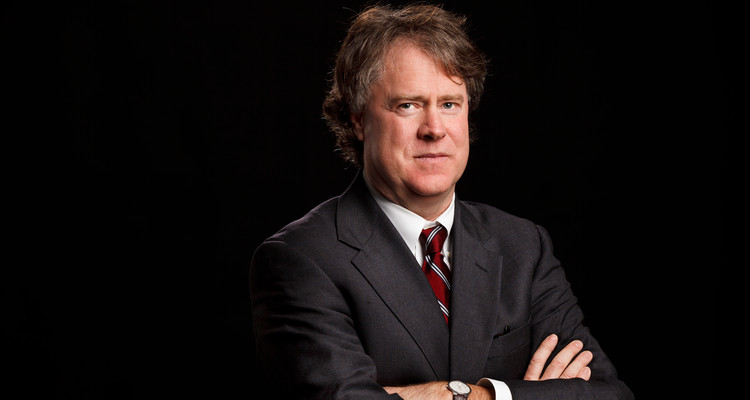Joe Arpaio, the infamous former sheriff of Arizona’s Maricopa County who last week became the first person to be pardoned by President Donald Trump, is now asking the federal judge who found him in criminal contempt of the court to vacate his conviction.
Arpaio was found guilty of criminal contempt after failing to obey a 2011 court order to stop detaining individuals he suspected had immigrated to the country illegally. He faced up to six months in jail, and was set to be sentenced on October 5th. (Arpaio was a controversial figure long before that. As the Phoenix News Times laid out on Twitter last week, he has a long history of allegedly violating basic human rights.)
Defending his decision to pardon Arpaio—a move that’s drawn backlash from even his own party—Trump pointed to several controversial pardons made by his predecessors, and claimed that Arpaio was no worse. “Sheriff Joe is a patriot,” Trump said on Monday. “Sheriff Joe loves our country. Sheriff Joe protected our borders. And Sheriff Joe was very unfairly treated by the Obama administration.”
While everyone agrees it was a lawful use of the presidential pardon power, it was also unusual on many levels. For one thing, Arpaio hadn’t even officially applied for clemency with the Department of Justice (DOJ). Arpaio also hasn’t expressed guilt or remorse—despite the fact that the DOJ explicitly states in its instructions for clemency applicants that they “should be genuinely desirous of forgiveness rather than vindication.”
Arpaio hadn’t yet exhausted all of his appeals for his conviction. Indeed, one appeal still pending before the United States Supreme Court when Trump issued the pardon objected to the federal district judge’s decision to reject Arpaio’s request for a jury trial. But Trump’s pardon makes his case moot and essentially resolved in the eyes of the law, which means that no court will hear Arpaio’s challenges to his conviction and he is left with no legal recourse to try to get his conviction overturned.
Pacific Standard spoke with Mark Osler, a law professor at the University of St. Thomas in Minneapolis and a clemency expert, about Arpaio’s unusual situation, and what his pardon means for the future of this presidential power.

Is it common for those who receive pardons to seek to have their convictions overturned?
No, not at all. In fact, I don’t think I’ve ever heard of that before, in part because the pardon itself, unlike a commutation, lifts off the burden of the conviction in most instances in the first place. For example, if you’ve received a pardon, limitations on being licensed that apply to felons usually no longer apply. Your rights are restored: You can have a gun, you can vote. So there’s no reason to do it. Most of them have admitted their acts, and that was part of them getting the pardon.
Everyone agrees that the president’s decision to pardon Arpaio was within his power as commander-in-chief, but many legal experts are still concerned. Why is that?
It destroys the spirit of what the constitution intends clemency to be. As commander-in-chief, the president has the ability to do some terrible things. If the president was to use the commander-in-chief power to support his own personal ends rather than those of the country, that would be a violation of the intent of giving him that power.

(Photo: University of St. Thomas)
You’ve written that, historically, “the powerful forces of politics and shame” have effectively served as checks and balances to presidential pardon power. Why don’t these forces constrain Trump as well?
He seems to not have a sense of shame the way other do. He also seems to defy the normal rules of politics, given that that’s what normally constrains the pardon power and steers it away from abuse—we don’t see that applying here. That takes us to a new place. Trump himself has pointed to previous controversial uses of the pardon power: Marc Rich, for example. Yeah, Marc Rich was a terrible mistake by Bill Clinton. Scooter Libby was a real mistake by George Bush, but this goes beyond that in some important ways. With these prior bad pardons, the president didn’t embrace the crime. The president showed favoritism to a friend or someone who was a supporter, but didn’t go that next step of saying, “Not only do I believe in this person, but I believe in what he did.” That’s a deeper threat to the rule of law.
In that it undermines the authority of the judicial branch?
There’s the general sense that he’s undermining a court order. But in a more specific sense, by granting a pardon to someone who is facing sentencing on contempt, he’s lifting off the only tool, the only hammer, that a court has to enforce their decisions. That threatens to really upset the balance of power. There’s a way in which this is as much about Michael Flynn as it is about Joe Arpaio. Because what happens when Michael Flynn is given a pardon and then is called to testify before a grand jury? Well maybe he just won’t show up. All a court can do in that instance is to hold him in contempt. We know now that this president is willing to pardon someone who is facing that sanction. What we have to fear now with people involved in the Russia investigation isn’t just a pardon but a double pardon: one for the underlying offense and one for being held in contempt, if they are called to testify.
Is there any legal recourse to reign in the presidents use of the pardon power, to stop him from doing something like this?
There’s only one, and that’s impeachment.
This interview has been edited for length and clarity.





